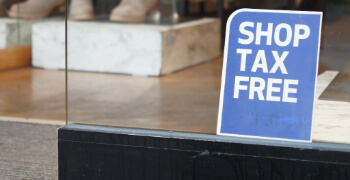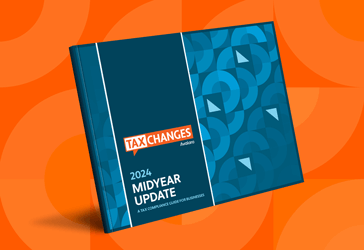From maintenance to martial arts, more states are taxing services
There’s no doubt Americans consume a lot of stuff, but we now spend far more on services than goods (Bureau of Economic Analysis). For the first time in history, we dine out more than we buy food to prepare at home. We stream music and movies rather than purchase CDs or rent DVDs. We even pay people to help whip us into shape, and then pay others to make our worn-out bodies feel better.
The shift to a service-based economy has many consequences. For example, service industries like healthcare and social services are now the largest employers in 34 states, while once-dominant manufacturing is king in only seven states. (You could chalk this up to off-shore manufacturing, but that’s not the only cause—even China’s economy is shifting to services.)
States that rely on sales tax revenue to balance their budgets are particularly affected by the change, and they’re reacting. On March 1, 2016, North Carolina extended sales and use tax to many previously exempt services, notably installation, maintenance and repair services (service contracts became subject to tax in 2014). On January 1 of this year, charges for martial arts and many other athletic and amusement activities became taxable in Washington State. In 2015, among other changes, website hosting services became subject to Connecticut sales tax, Chicago slapped a tax on many amusement services, and cloud computing and video game services became taxable in Tennessee.
If this looks like a trend, it’s because it is. An increasing number of states are taxing a growing number of services for the first time. As consumption in the United States continues to shift from goods to services, states that rely on sales tax revenue will look to tax more services to keep their budgets in the black. For businesses that provide or consume services, understanding service taxability will become increasingly critical to sales and use tax compliance.
How states determine sales tax on services
There are two ways for states to approach taxing services:
- Impose tax on specifically enumerated services (all others are exempt)
- Impose tax on all services, except those specifically exempted
Four states take the second approach, imposing sales tax on all services except those specifically exempted by law: Hawaii, New Mexico, South Dakota and West Virginia. Five states tax fewer than 20 services: Colorado, Illinois, Massachusetts, Nevada, Virginia.
The majority of states take the first approach, applying sales tax to only certain, specifically enumerated, services. And five states (Alaska, Delaware, Montana, New Hampshire, and Oregon) do not have a general sales tax.
How state define services
Services are generally broken up into four categories:
- Business services
- Personal services
- Professional services
- Maintenance and repair services
As consumers, most of us don’t stop to consider if we’re purchasing a “personal service” or a “professional service.” However, the distinction is important because the type of service often affects taxability.
Business services
Services primarily consumed by businesses are known as business services. These are numerous and include advertising, computer services, human resources services, lobbying and consulting, and payroll services. Some surprising states, including New York, Texas, and the District of Columbia, tax several business services.
Personal services
Personal services are primarily consumed by individuals, although they may also be purchased by businesses. They include dry cleaning, hair care, hunting and fishing guide services, and tanning. Hawaii, New Mexico and South Dakota tax all personal services; a few other states tax most personal services.
Professional services
Professional services providers include architects, attorneys, doctors, engineers—people who need to obtain special certification, education and licensing in order to practice in a state. As with personal services, they are consumed by both businesses and individuals. Little or no tangible personal property is involved in these transactions, but when it is (e.g., architectural or engineering plans), taxability can be impacted.
Again, Hawaii, South Dakota and New Mexico tax a broad range of professional services. States that don’t tax the service typically tax the business inputs.
Repair, maintenance and installation services
Repair, maintenance and installation services can be provided to tangible personal property (like your refrigerator or car) or to real property (like your house).
Often—but not always—these services are taxable if the tangible personal property (TPP) is taxable and exempt if it’s exempt. It can be critical for businesses to separately state service charges on invoices that include TPP, as some states exempt services if they’re separately stated but tax them if they’re combined.
The taxability of services provided to real property often hinges on whether the property is residential or commercial and whether the project is new construction or a remodel. Here again, the fact that tangible personal property is often involved (e.g. materials) can complicate taxation. To make matters worse, states don’t define construction services in the same way.
Sourcing rules for services
Determining whether or not a service is subject to tax in a particular state is the first step. Next comes figuring out the proper rate to apply to the transaction. This can be complicated because states source the sale of services in one of two different ways:
- The location where the service is performed
- The location where the benefit of the service is received
Often the location is the same, as when hair is cut or a car is repaired. But that’s not always the case. In fact, one reason many states have opted not to tax many professional services is because it’s easy to purchase those services from providers located in other (more tax friendly) states.
Once sourcing is understood, varying rules and rates can come into play and make sales tax compliance more complex. For example, confusion can arise when a service provider is located in a state that applies tax based on where the service is performed but the consumer is located in a state that applies tax based on where the benefit is received. Audits invariably arise.
States are changing the rules
It’s not easy for states to broaden sales tax. Neither businesses nor individuals want to pay tax on anything that’s always been exempt. When the District of Columbia expanded sales tax to yoga in 2014, scores of people performed the warrior pose on Freedom Plaza in protest. Earlier this year, a political action committee in Missouri started to craft a constitutional amendment that would prevent the state from taxing professional services. Businesses tend to fight tooth and nail to keep the services they most use exempt, and professional services providers such as attorneys often have influential friends in state capitals.
Nonetheless, the trend to tax more services continues:
- The governor of Maine strove to broaden sales tax in 2015 (that effort failed so he is now working to increase the state rate).
- A fiscal report in Indiana called sales tax regressive but noted there are good reasons to broaden the sales tax base (including the need for more revenue).
- The Vermont General Assembly has called for “an examination and rethinking of Vermont’s current sales tax base”; it has charged the Department of Taxes to extend sales and use tax to select consumer services (but not business to business services).
- If Pennsylvania lawmakers ever agree on a budget, it will almost certainly include a substantial expansion of the sales tax base. The 2015-16 budget proposal included 21 pages of enumerated, newly taxable services.
For a more comprehensive look at services taxation nationally, download Avalara’s Service Taxability by State guide to learn more about which services are taxable in each of the 50 states.
The best way to handle sales tax compliance related to services is to automate. Avalara’s AvaTax software instantly and accurately applies the right tax rates and rules to all your transactions. Now that’s service with a smile (which is what you’ll be doing because your sales tax is handled).
Stay up to date
Sign up for our free newsletter and stay up to date with the latest tax news.













